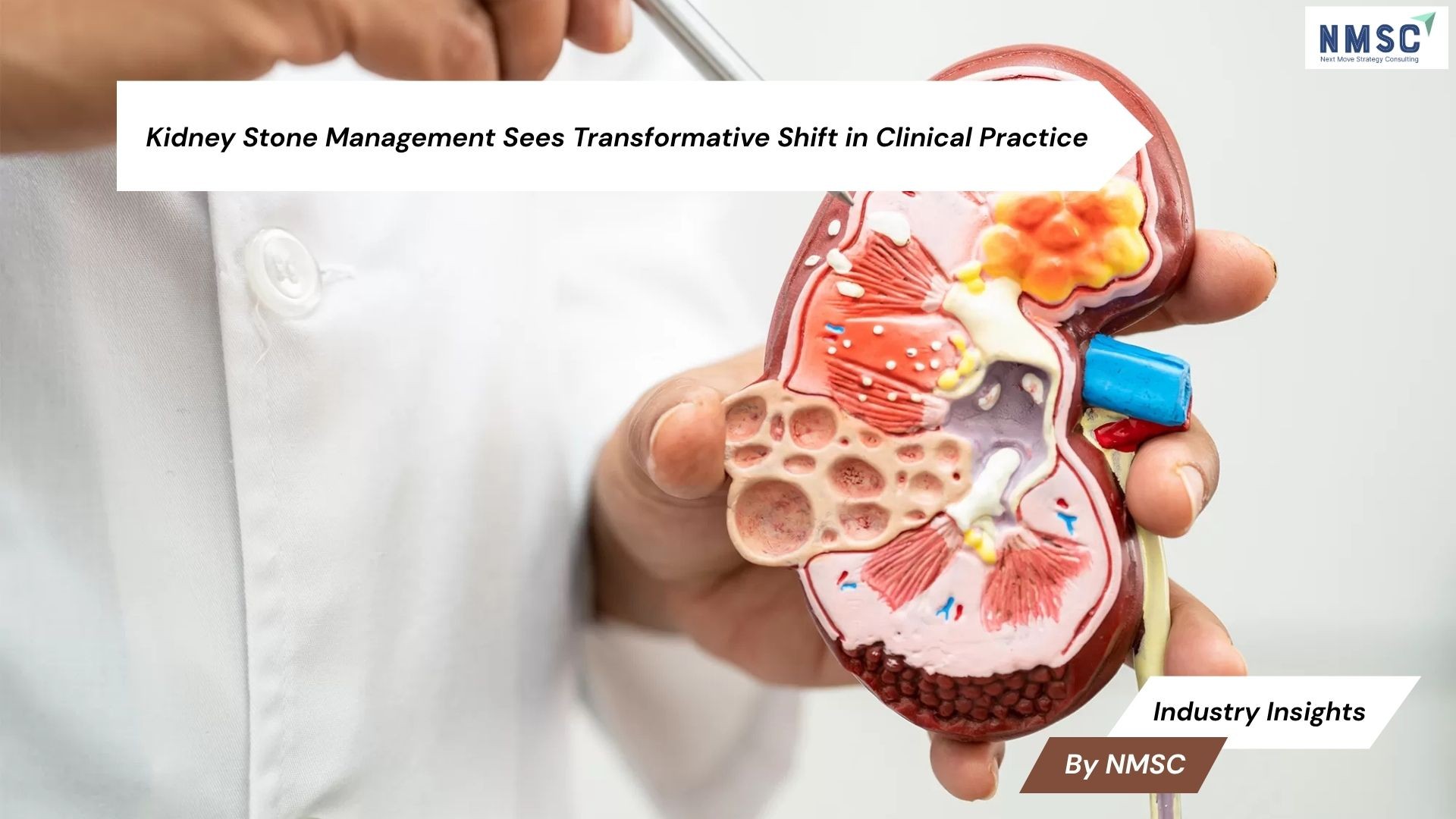Kidney Stone Management Sees Transformative Shift in Clinical Practice
Published: 2025-08-21

Industry Insights from Next Move Strategy Consulting
The landscape of kidney stone management is undergoing significant transformation, driven by the pursuit of more effective, less invasive, and patient-centric care. As outlined in the recent publication of National Institutes of Health, advancements in diagnosis, prevention, and treatment modalities are steering kidney stone management toward improved diagnostic tools, minimally invasive treatments, and evidence-based prevention strategies.
From Fragmented Approaches to Comprehensive Care Models
Historically, kidney stone treatment has been reactive—primarily focused on acute stone removal. However, current strategies are evolving into more proactive and comprehensive care models. The paper discusses how metabolic evaluations and personalized treatment plans are increasingly being recognized in clinical management.
The integration of imaging technologies, minimally invasive procedures, and targeted medical therapies is reshaping standard practice. These developments improve outcomes and contribute to reduced recurrence, with implications for overall care efficiency.
Emerging Trends at a Glance:
-
Precision Diagnostics: Enhanced imaging and laboratory evaluations now enable accurate stone composition identification and individualized risk profiling.
-
Minimally Invasive Techniques: Procedures such as ureteroscopy and percutaneous nephrolithotomy are gaining traction due to improved safety and efficacy.
-
Preventive Focus: There is growing clinical emphasis on integrating preventive strategies alongside stone removal procedures.
-
Long-Term Management Plans: Follow-up protocols and surveillance strategies are increasingly being emphasized to reduce recurrence and improve patient compliance.
Aligning Clinical Practice with Long-Term Outcomes
The research underscores a pressing need for consistency in post-treatment surveillance and preventive measures. Despite significant advances, inconsistent follow-up after treatment may contribute to recurrence risks. The study emphasizes that addressing these inconsistencies is important for reducing recurrence in kidney stone patients.
This may be because risk factors for the recurrence of kidney stones, such as genetic predisposition, dietary habits, or underlying metabolic disorders, would affect both kidneys equally.
Toward a New Standard in Urological Care
As kidney stone disease remains a prevalent urological condition, the integration of personalized risk assessment and long-term prevention strategies marks a significant evolution in urological care practices. The findings suggest that continued progress will depend on wider adoption of preventive evaluations, dietary counselling, and follow-up care tailored to individual risk profiles.
A renewed focus on metabolic evaluation, individualized therapy, and consistent follow-up reflects ongoing improvements in the clinical management of kidney stones.
Source: https://pmc.ncbi.nlm.nih.gov/articles/PMC11687201/
Prepared by: Next Move Strategy Consulting
















Add Comment